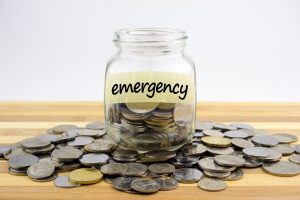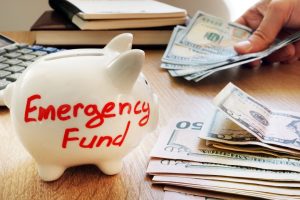The only certain thing in life is the unexpected. Financial shocks can happen at any time, such as when you suddenly need medical care, your car breaks down or you lose your job. This is a clear example of how important it is to save money for emergencies. Not only is it a good idea to have a financial cushion, but you need one for your financial health and peace of mind. This article describes the importance of saving money for emergencies and provides tips on how to plan for the unexpected.
The Essence of Emergency Savings
Having emergency savings is like having a financial safety net that you can use to cover unexpected expenses without going into debt. The primary purpose of these funds is to keep you stable during times of financial change. They ensure that you can meet your basic obligations and needs, even if your source of income is interrupted or unexpected expenses arise.
How much should you keep?
A good rule of thumb is to save enough money to cover three to six months’ living expenses. But the right amount may differ for each person, depending on factors such as their health, job security, and family responsibilities. Some financial experts say you should aim for a bigger cushion, especially in the labor market or in areas that are experiencing a lot of change.
How Not Having Emergency Savings Can Hurt You
People often use credit cards or loans to pay for unexpected expenses that can add to their debt if they don’t have a financial cushion. The interest rates on these debts can be very high, making it difficult to get out of debt. Not having an adequate emergency fund can also put people under greater pressure and limit their options, forcing them to make decisions that harm their finances.
Set up an emergency fund
To start saving for emergencies, you need to review your current financial situation and create a savings plan. If necessary, start with a small amount at first and slowly increase it as your financial situation improves. Make your emergency fund a top priority as an absolute must in your monthly expenses.
Where to Keep Your Emergency Savings
You should keep your emergency funds separate from your regular checking accounts so that you aren’t tempted to use them for non-emergency situations. You can use a high-yield savings account, a money market account, or a short-term certificate of deposit (CD) to get cash quickly and earn some interest on your money.
Set up automatic savings
Setting up automatic payments from your checking account to your emergency savings account can make the process easier and keep your savings growing. If you set up automatic savings, you can “pay yourself first,” which means you have to save before you spend money.
Regular review and changes
The amount in your emergency fund should change depending on your financial situation. As your income, expenses, and life circumstances change, regularly reviewing and adjusting your emergency savings will ensure your money remains strong and useful to provide financial security.
Conclusion
Having emergency savings is an important part of maintaining financial stability because it protects you from life’s unknowns and reduces your dependence on debt when times get tough. By prioritizing saving for emergencies, people can increase their financial security and feel more confident when the unexpected happens. Planning for the unexpected can not only save you money but also give you peace of mind in the future.
FAQs
1. So why is it important to have cash on hand for emergencies?
Having emergency savings is important because they can provide you with a financial safety net in case of situations such as medical problems, sudden job loss, or situations that require immediate repairs around the home. This fund helps cover these unexpected expenses, so you don’t have to apply for a loan. This can keep you financially stable during difficult times.
2. How much do you need to save as a safety net?
Most experts say you should have enough money in your emergency fund to cover three to six months of living expenses. However, the exact amount may vary depending on factors such as job security, monthly costs, and whether you have dependents.
3. Where should I keep my savings for emergencies?
Your emergency savings should be kept in an easily accessible account, such as a money market or high-yield savings account, so you can access it quickly while earning interest. These funds should be easily accessible and not lose their value. Therefore, they should be kept separate from riskier investments.
4. Can I put my emergency money elsewhere for a better return?
It may be tempting to invest emergency funds to earn better returns, but it is important to remember that these funds should be easy to access and not risky in the market. To ensure your money is available when you need it, it is best to keep it in a low-risk open account.
5. Should I save money or pay off my debts first?
This depends on your current financial situation. High-interest debt can quickly become unmanageable, so it is often wise to pay it off first. Setting aside a small amount (such as $1,000) before you start paying off debt quickly can help you avoid falling deeper into debt when you have to pay unexpected costs.
6. How often should I check my backup funds and make changes?
It’s a good idea to review your emergency fund once a year, or whenever there are major changes in your financial situation (such as you get a new job, your living expenses change, or your family grows). This keeps your reserve fund large enough to meet your needs.


